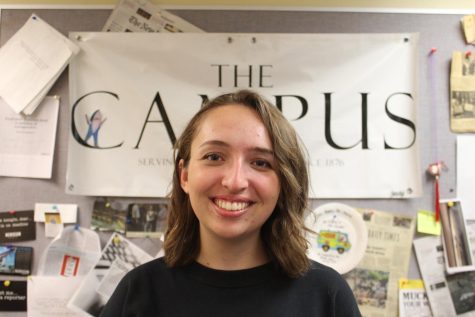A successful summer is more than just internships
I’ve always loved the beginning of the school year: a fresh start, the anticipation in the air, the comfort of a routine and the promise of fall on the horizon. It’s almost perfect — and then the dreaded question begins plaguing me once more.
“What did you do over the summer?”
As a child, the answer was simple: I ran around in my backyard, got covered in dirt, drank some water from the hose and watched TV before bed. Easy. But as time passes, life becomes more complex. Maybe you spent all summer lifeguarding or at a summer camp. Maybe you went on a ceaseless road trip with your family. Maybe you were in marching band and your summer was woefully truncated by band camp.
College is an entirely different ballgame. Everybody did the same thing in the summer of 2020 — nothing. The summer of 2021 rolled around and I had two internships. That’s a good, respectable answer. I felt a sense of pride last fall informing everybody who asked that I had been a marketing and communications intern in Cleveland. When the time came to start planning for the summer of 2022, I knew that it would not be the same.
What did I do over the summer? I worked. I waitressed at a pizza place and regularly came home smelling like an Italian deep-fryer. I went on some hikes and read some books, I sat in the woods and drove the backroads of McKean County. I don’t know how to tell people this.
I’ve heard some pretty interesting answers to the summer question. Peers have traveled abroad and conducted research and participated in fellowships. That’s fantastic; I’m continually amazed by the adventurous spirit and academic drive of Alleghenians. If I wanted to, I could’ve followed a similar path. I interviewed for internships and cobbled together applications for writing workshops, but something was not right. I was not right.
I hate the question because when I give my answer — “I worked” — nobody knows how to react. Some people say they’re sorry, as if I was punished for three months. Others respond with a mix of pity and boredom. It’s not a very interesting answer, after all. A select few have no reaction — those are my favorites. We accept that I did what the majority of the population does with their summer months and move on to far better topics of discussion.
Here’s the thing: I didn’t see my summer as a punishment or a burden. At the end of the spring semester, I felt like I was dangling off of a cliff by one finger, like I was held together with duct tape and safety pins. I needed quiet and a routine. I needed money. The obvious answer was to go home, do some work and use my free time to put myself back together — so that was exactly what I did.
I know, I know: every college summer is a precious time to build your resume, to show that you have drive and ambition and a good work ethic to boot. I was paralyzed with anxiety in May that choosing to slow down over the summer would somehow irrevocably ruin my future prospects forever. There’s such an emphasis in our academic culture of demonstrable success — awards, money, acclaim and all those other bright, shiny things — that we often forget about the quieter, smaller ways to define success. Success for me right now is a week without paralyzing anxiety. It’s actually wanting to wake up in the morning. It’s baking bread and tending the garden and reading poems and making a mess of watercolors while watching “Murder, She Wrote.” These were, until June, things that were sorely missing from my life, sacrificed to the God of Ambition.
Let me be clear: I think ambitious people are great. Generally, I am one. But I’ve come to learn that if you do not pick a time to rest, the universe and your body will conspire and pick a time for you. As is true for most facets of life, balance is necessary. “Extraordinary” is not sustainable; nobody can operate at one hundred percent every day. My summer — my ordinary summer — was one of the best I’ve had in a long time. I came out of it knowing myself better than before, rested and ready to face senior year as bravely as possible.
Perhaps most importantly, though I did not spend my summer learning how to run a political campaign or design software, I learned how to take care of myself. It’s a precious skill that few develop, and more and more, I encounter students on this campus who are worn down to shells of their former selves pursuing what they believe is the best path — the only path. Our culture does not value rest. It is fast-paced and relentless. I always thought that slowing down was a sign of weakness and taking a break was tantamount to murder. You can rest when you’re successful. Until then, keep your nose to the grindstone and complaints to a minimum.
Pragmatically, success is whatever you want it to be. I, for one, had a pretty successful summer — even if my answer to the fabled back-to-school question is uninteresting.

Sydney Emerson is a member of the class of 2023. She is from Bradford, Pennsylvania and is an English major with a history minor.





